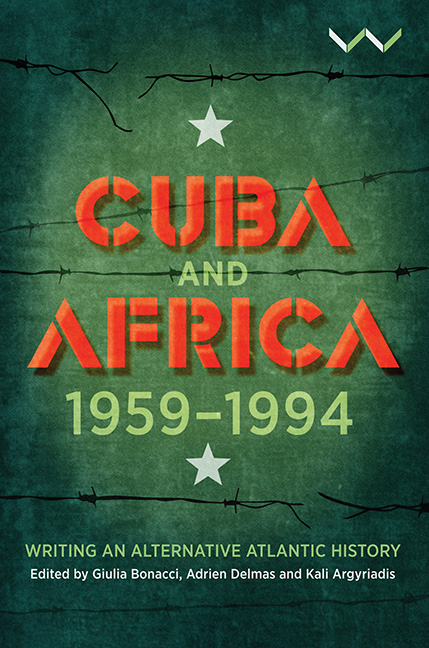Book contents
- Frontmatter
- Contents
- Figures and Table
- Foreword
- Acknowledgements
- Acronyms and Abbreviations
- Timeline of Historical Events
- Map of Africa, 1994
- Introduction Reconfiguring the Cuba–Africa Encounter
- Part I Politics and Solidarity
- Part II Trajectories
- Part III Voices
- Part IV Reconstructing History, Reconnecting Roots
- Contributors
- Index
Chapter 4 - Cuban Internationalism in Africa: Civil cooperation with Angola and its aftermath
Published online by Cambridge University Press: 15 June 2021
- Frontmatter
- Contents
- Figures and Table
- Foreword
- Acknowledgements
- Acronyms and Abbreviations
- Timeline of Historical Events
- Map of Africa, 1994
- Introduction Reconfiguring the Cuba–Africa Encounter
- Part I Politics and Solidarity
- Part II Trajectories
- Part III Voices
- Part IV Reconstructing History, Reconnecting Roots
- Contributors
- Index
Summary
Cuba and Africa have a long, rich and complex history with a trajectory of probably more than five hundred years since the time when, together with the Spanish conquistadors, the first Africans set foot on the island. Cuba has particularly close links to Africa because of the transatlantic slave trade, which started in the early sixteenth century. Of the estimated 10 to 12 million Africans who survived the Middle Passage across the Atlantic to the Americas, about one million came to Cuba. This history became even more complicated in the nineteenth century, in the era of ‘Second Slavery’, when the Cuban colonial plantation economy became the world's first producer of sugar for the world based on mass slave labour. The majority of Africans in Cuba – slaves, former slaves and their descendants – fought actively in Cuba's long independence struggle (1868–98) against Spanish colonial rule. Cuba's post-emancipation history (after 1886) illustrates that the connection with Africa was not merely a unidirectional movement from Africa to the Americas resulting from the forced migration of Africans. It was the start of a process of exchange and reciprocity. Beginning in the late 1950s, Cuba's civil and military South–South cooperation with different African countries coincided politically with the dynamics of massive decolonisation in Africa. Nevertheless, this cooperation would not have been possible without the long-term connections between Africa and the Americas since the age of European expansion into the Atlantic.
The involvement of Africans and their descendants in Cuba's independence struggle constitutes the historical framework for the official explanation of support for Angola's anti-colonial movement, the Popular Movement for the Liberation of Angola (MPLA). Castro's justification for Operation Carlota, the military engagement that started the cooperation with Angola in autumn 1975, referred to the ‘historical duty’ of Cubans to support the Angolan independence struggle. Castro created an interactive transatlantic space and went as far as defining Cuba as an ‘Afro-Latin American nation’ – and was indeed the first to invent, avant la lettre, what the British cultural studies academic Paul Gilroy later called the ‘Black Atlantic’ – a turning point in the study of African diasporas.
- Type
- Chapter
- Information
- Cuba and Africa, 1959-1994Writing an Alternative Atlantic History, pp. 85 - 106Publisher: Wits University PressPrint publication year: 2020

